
On the afternoon of May 15, the parallel session on “AI For STEM Education” of the 2025 World Digital Education Conference, hosted by the Ministry of Education of the People’s Republic of China, the Chinese National Commission for UNESCO, the People’s Government of Hubei Province, and organized by WUT, was held at the Wuhan International Expo Center. Over a hundred domestic and international educators, education researchers, AI specialists, and industry professionals gathered to discuss the current applications and future prospects of AI in STEM education.
The parallel session focused on the latest research achievements and successful cases of AI in science, technology, engineering, and mathematics (STEM) education. It facilitated the exchange of new ideas, practices, and capacity-building experiences in the application of AI in STEM education globally. Discussions also explored the revolutionary impact of emerging AI technologies on STEM education and future development trends, aiming to foster a shared policy vision and international cooperation consensus to promote practical collaboration in AI-driven STEM education transformation.
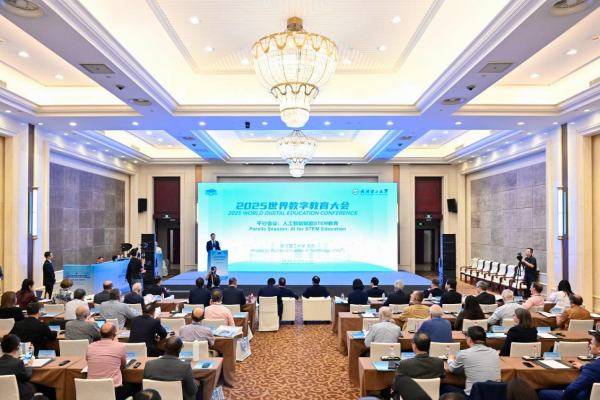
Ma Xuming, Vice Chairman of the Hubei Provincial Committee of the Chinese People’s Political Consultative Conference (CPPCC) and member of the Party Leadership Group, Kongratbay Sharipov, Minister of Higher Education, Science, and Innovation of Uzbekistan, and Stefan W. Hell, German physicist and 2014 Nobel Laureate in Chemistry, delivered opening remarks. Xin Sijin, Secretary of the Party Committee of WUT, presided over the session.
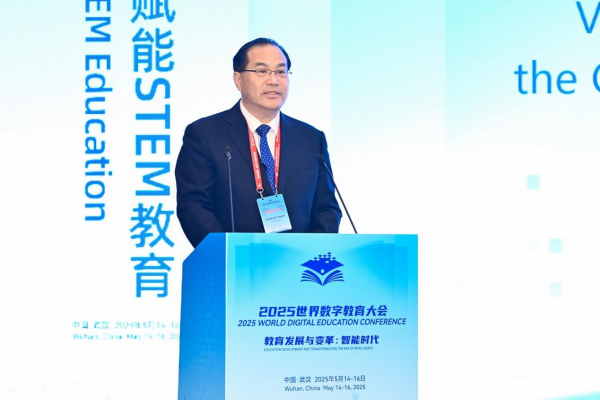
On behalf of the People’s Government of Hubei Province, Ma Xuming extended a warm welcome to the attendees. He noted that Hubei has actively explored and achieved remarkable results in AI-powered education in recent years. By pooling global wisdom and strength, he believes STEM talent cultivation will reach new heights. On behalf of Hubei, he proposed the following initiatives to representatives from various countries: uphold resource sharing, maintain open cooperation, and commit to ethical AI development. He called for joint efforts to contribute to global STEM education advancement and digital transformation in education.
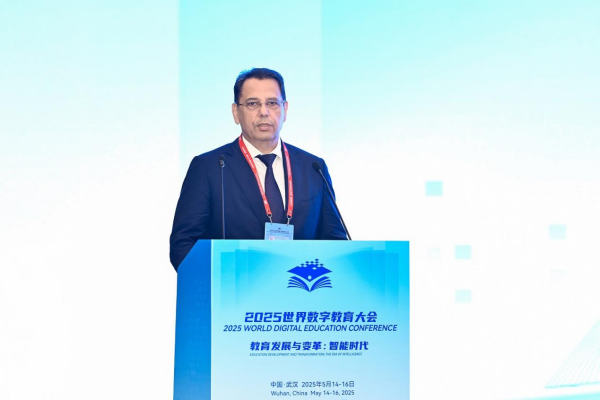
Kongratbay Sharipov emphasized that in the context of STEM education, AI is no longer just a tool but an active participant in teaching and research. Uzbekistan has identified AI development as one of its national priorities. He expressed hope that countries, universities, industries, and experts would engage in dialogue on the understanding and implementation of AI in STEM, share experiences in establishing AI labs and digital platforms, develop digital universities, promote innovative approaches in STEM education, and collectively create a future where technology and education progress hand in hand.
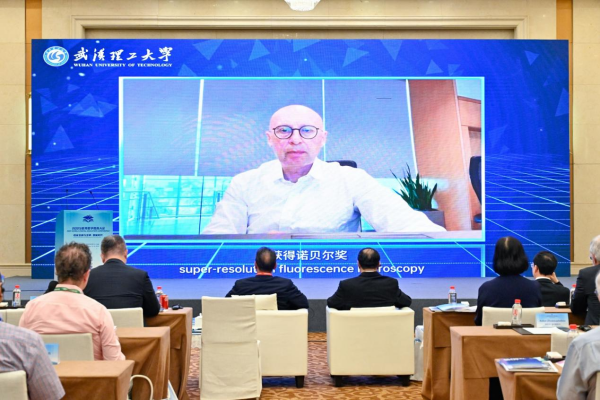
Stefan W. Hell stated that this conference provides new opportunities for the development of AI in science, technology, engineering, and mathematics, paving the way for groundbreaking research and discoveries. He expressed confidence that the event would have a profound impact on the future of education.
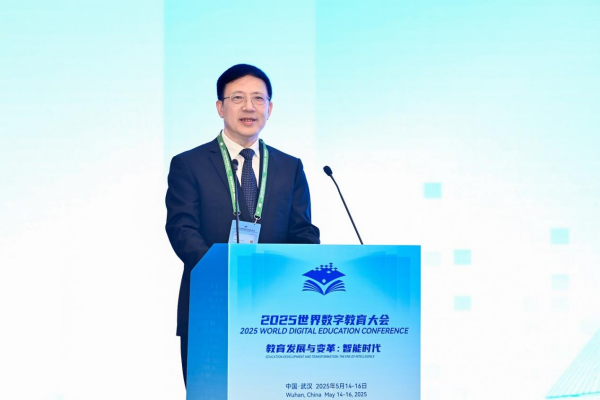
Xin Sijin, on behalf of WUT, welcomed the attendees and expressed hope that experts would engage in in-depth discussions to shape a shared policy vision and international cooperation consensus on AI’s role in STEM education transformation, fostering practical collaboration for a brighter future.
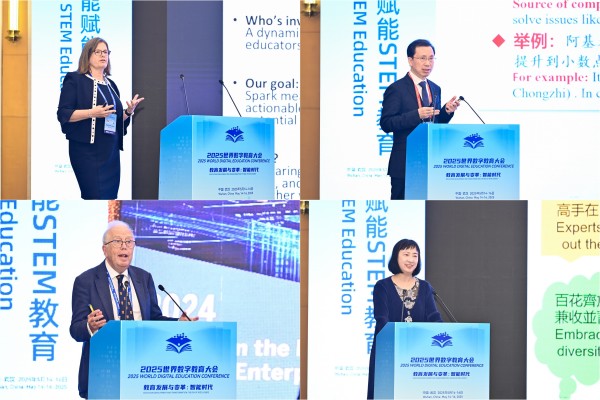
In the first phase of the keynote reports, Sophie Chauvet, Vice President of Aix-Marseille University in France, Zheng Qinghua, Secretary of the Party Committee of Tongji University, M.James C.Crabbe from the University of Oxford in UK, and Li Meichang, Permanent Secretary of the Education Bureau of Hong Kong, delivered speeches on topics including “Transforming Higher Education—Aix-Marseille University’s Practices in Integrating AI into Teaching and Learning,” “AI Empowers Innovative Development in STEM Education—Insights and Practices,” “Borderless Collaboration and AI Technologies in STEM Education,” and “AI Empowers STEAM Education in Hong Kong’s Primary and Secondary Schools.” Zhang Di, Vice President of WUT moderated the session.
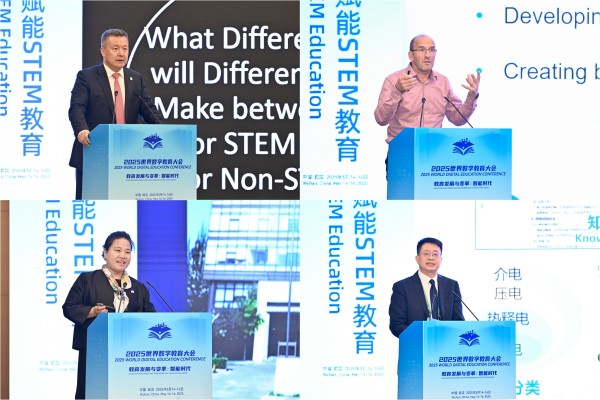
In the second phase of the keynote report session, Liu Jun, President of City University of Macau, Georg Bohnert, Vice President of Friedrich Schiller University Jena; Jiang Hui, Secretary-General of the Asia-Pacific Space Cooperation Organization (APSCO), and Mai Liqiang, Vice President of Wuhan University of Technology, delivered thematic reports on “Applications of Artificial Intelligence in STEM vs. Non-STEM Education: Differences”, “Frontiers in the Integrated Development of Artificial Intelligence, Chemistry, Biological Sciences, and Education”, “Upgrading Space Education with Artificial Intelligence”, and “Practical Applications of Wuhan University of Technology’s ‘Materials+’ Large Model in Cultivating Top-Notch Innovative Talents”. The session was chaired by Elwen Evans, President of the University of Wales Trinity Saint David.
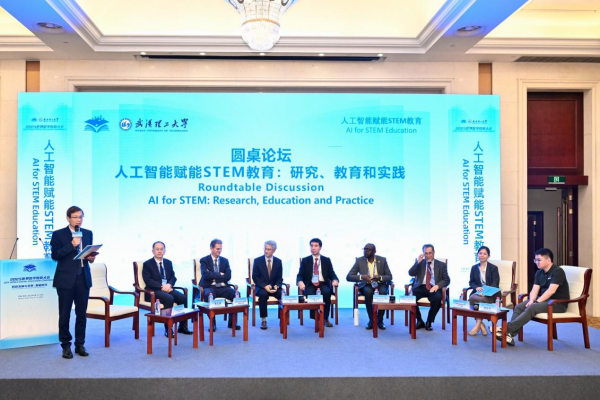
“AI can solve exercises, but it cannot replace students’ capability to ask questions.” During the round table discussion session, experts present shared their insights, creating a lively atmosphere in the venue. Emmanuel Peter, Vice President of the French School of Electronics and Computer Information; Wen Yonggang, Associate Provost of Nanyang Technological University and Academician of the Singapore Academy of Engineering; Kang Jian, Fellow of the Royal Academy of Engineering, Member of the European Academy of Sciences, and Foreign Member of the Chinese Academy of Engineering (affiliated with University College London, UK); Ferdinand Puddu from the University of Michigan; Safian Shariff, Vice President of the University of Technology, Malaysia; Yeth Sophon, Vice President of the Royal Academy of Cambodia and Kemara University; Jia Wenjian, President of Beijing Foreign Studies University; and Liu Hongsheng, Architect of Ascend MindSpore at Huawei’s 2012 Laboratory, engaged in discussions on the theme of “Artificial Intelligence Empowering Education: Research, Education, and Practice”. The discussion was chaired by Zhao Hua, Foreign Member of the Chinese Academy of Engineering, Vice President of Brunel University London, and Fellow of the Royal Academy of Engineering.
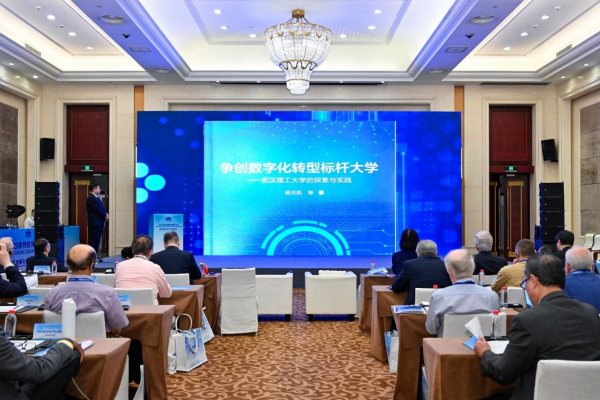
At the meeting, a launch ceremony was held for a book, Striving to Become a Benchmark University in Digital Transformation: The Exploration and Practice of Wuhan University of Technology. Taking WUT’s vivid practice of digital transformation as a sample, this book comprehensively documents how a Chinese university achieves leapfrog development through digitization, systematically combs the theoretical framework and implementation paths of educational digitization, and provides a referable "Chinese wisdom" for higher education professionals worldwide.
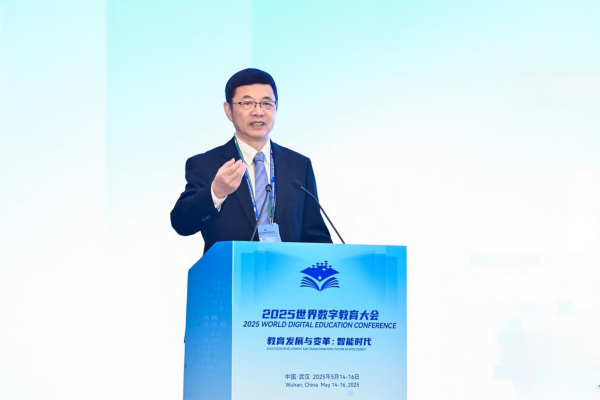
President Yang Zongkai of WUT expressed gratitude to the attending guests for their wonderful speeches. He discussed his insights on the development and transformation of education in the intelligent era from four aspects: learning AI, using AI, creating AI, and safeguarding AI. He indicated that Wuhan University of Technology has been exploring new paths in areas such as how to evaluate talent and how to achieve systematic transformation and reform in education. He looks forward to the strengthened cooperation and sharing among all parties, not only enhancing the supply of projects, content, platforms, and standards in the new stage, but also exploring a more open, shared, capability-centered, and personalized new education model.
During the event, the university convened seven seminars focusing on topics including AI empowering materials interdisciplinary research, international frontiers in chemistry, materials, life sciences, and AI interdisciplinary sciences and technologies, autonomous transportation research, AI empowering STEM engineering, advanced testing and characterization technologies and new material exploration, civil engineering and architectural planning, and the construction of the Institute of WUT-AMU. Experts, scholars, faculty, and students from home and abroad gathered to exchange the latest research achievements and discuss new development trends in various disciplinary fields.
Currently, China is vigorously promoting the education digitization and “AI plus” initiatives, with STEM education being crucial for cultivating scientific and technological innovative talent. The university has a solid disciplinary foundation in STEM (Science, Technology, Engineering, Mathematics). Hosting this parallel conference is a proactive choice based on its own disciplinary strengths and a demonstration of serving the national education digitization strategy and seizing the forefront of AI education. In the future, the university will continue to use “AI plus” as a fulcrum to lever educational paradigm changes, continuously deepen the organic integration of STEM education and industrial innovation, and provide a Chinese solution for global education digitization transformation.
Written by: Jiang Ning, Xie Xiaoqin, Xie Xintian
Rewritten by: Gong Mengting, Lin Qiaochu
Edited by: Li Tiantian
Source: Publicity Department of WUT, International Office of WUT, Office of the Administration of WUT
|
|